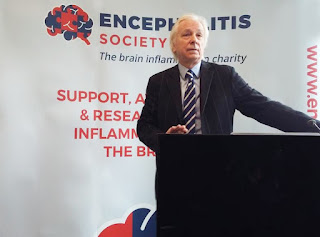Andrew Lees was born on Merseyside and is a Professor of Neurology at The National Hospital, Queen Square and University College London. He is in the top three most highly cited Parkinson’s disease researchers in the world and included in Thomson Reuters 2015 List of the Worlds Most Scientific Minds. He has written the authorised biography of the Arsenal and Liverpool football player Ray Kennedy who developed Parkinson’s disease in his early thirties (Ray of Hope, Penguin 1994) and which was made into a television documentary, Liverpool the Hurricane Port (Random House 2011) a book about his home city, Alzheimer's: The Silent Plague (2012 Penguin) and William Richard Gowers (1845-1915) Exploring the Victorian Brain, a biography of William Gowers. His book, Mentored by a Madman: The William Burroughs Experiment (Notting Hill Editions) published in 2016, explains his unlikely association with the author of Naked Lunch and his curiosity to find neurological cures. Brazil That Never Was, an investigation of saudade, was published by New York Review of Books in the USA. Lees's quest for a new viewpoint in the Amazon led to an unlikely linkage with Ciro Guerra’s film Embrace of the Serpent and a joint presentation with him at the premiere at the Institute of Contemporary Arts in London. His previous book, entitled Brainspotting: Adventures in Neurology, was published by New York Review of Books in April 2022 and was a plea for a return to soulful compassionate medicine. Lees has also written essays published in Dublin Review of Books, Literary Review, Empty Mirror, Tears in the Fence, The New York Review of Books, The Polyphony, and the Scottish Review of Books. He is a free thinker who has dedicated his recent years to reminding the scientific community that medicine is an art and that literary and science fiction can inform understanding.



No comments:
Post a Comment